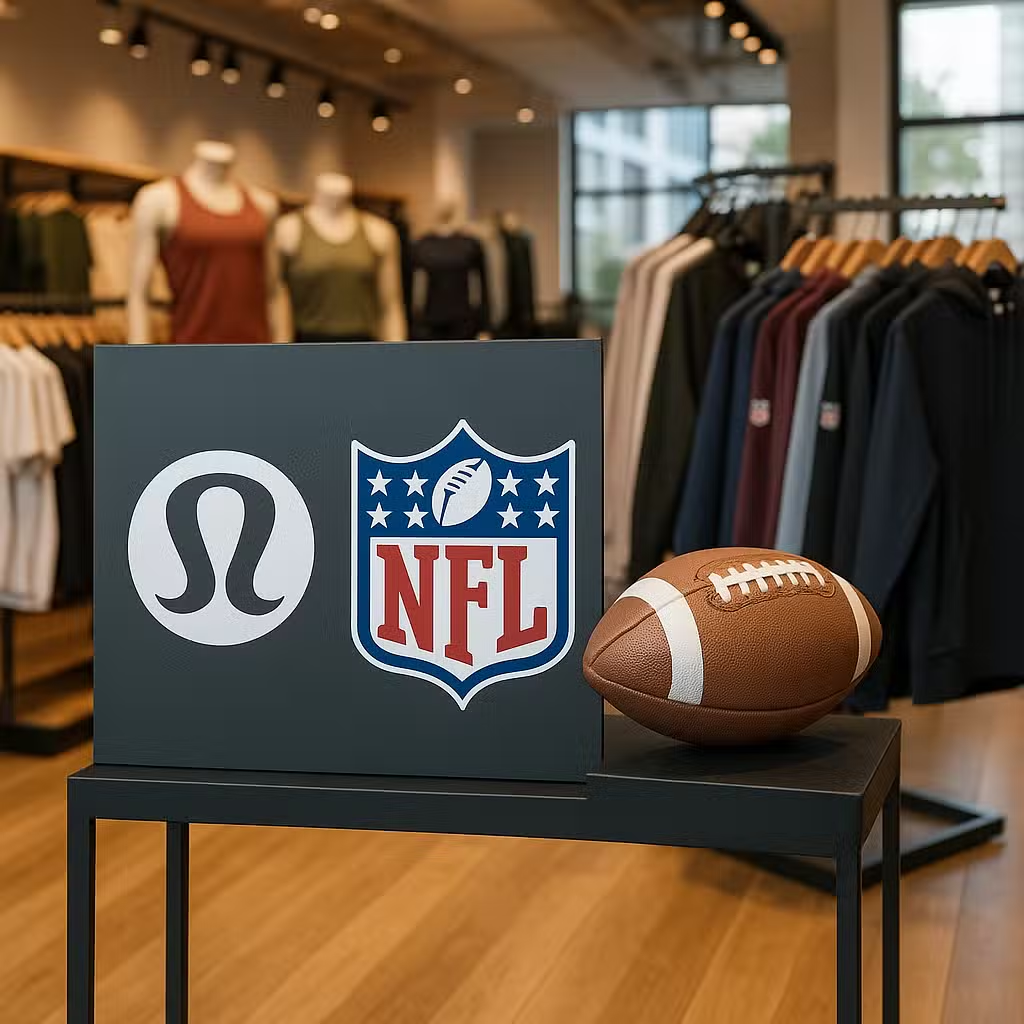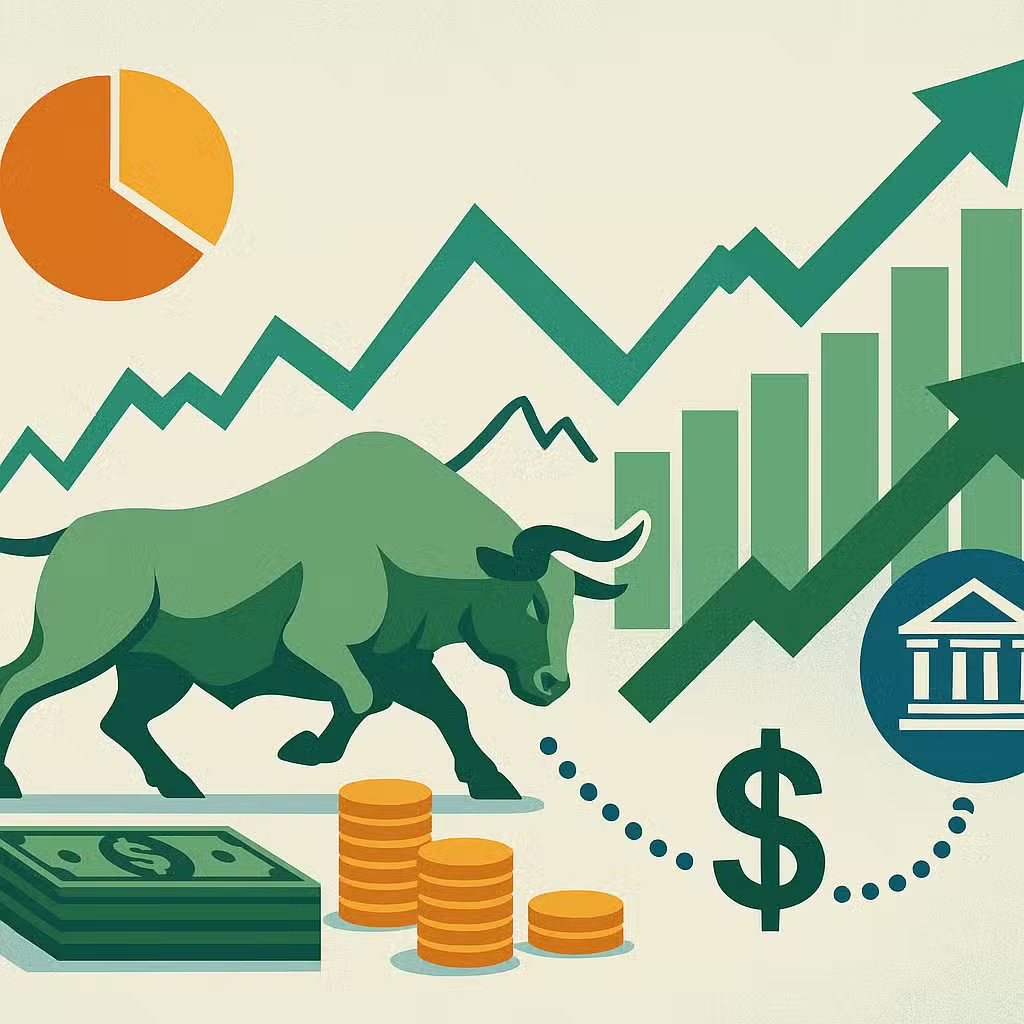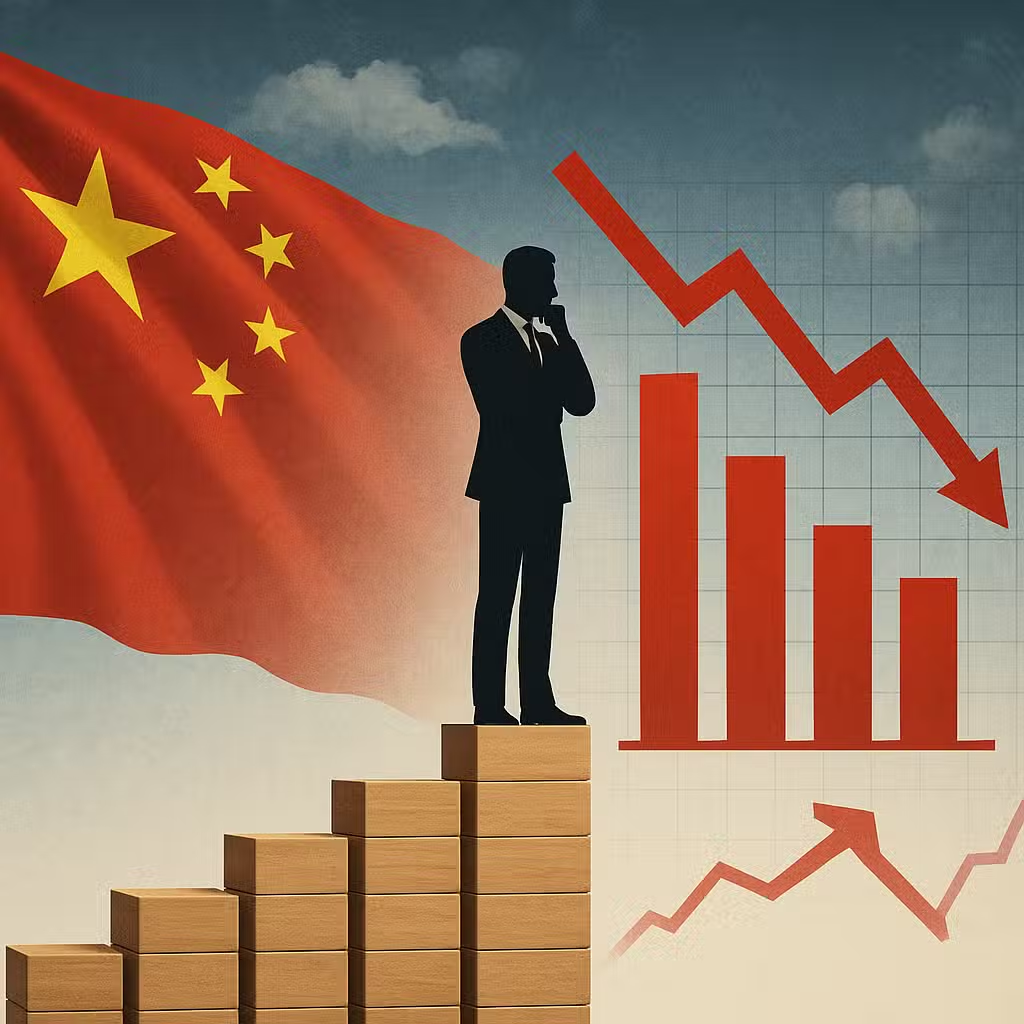Lululemon Teams Up with NFL, Opening New Growth Path in Sports Apparel Market
Imagine your favorite football jersey getting an upgrade—like swapping out an old lunchbox for a brand-new, high-tech backpack. That’s what’s happening as Lululemon teams up with the NFL to launch stylish, premium gear for all 32 teams. Here’s why this matters for investors.
What’s Happening?
Lululemon, best known for yoga pants, is now making official NFL gear for the first time ever. Starting this week, fans can buy men’s and women’s clothing and accessories with their team’s logo. Some of Lululemon’s top products, like the Steady State pants and Scuba hoodies, will be part of the collection.
This isn’t Lululemon’s first time working with sports leagues—they also have deals with the NHL and have signed famous athletes as brand ambassadors. The NFL collection will be sold on the league’s website, at stadium shops, and through Fanatics, a popular sports retailer.
Why Investors Should Care
When a company like Lululemon tries something new, it can affect its stock and the whole retail sector. After this announcement, Lululemon’s stock price jumped over 3% in morning trading. Investors want to know if this move will help Lululemon grow or if it’s just a short-term boost.
- Positive side (Bull): New partnerships can bring in fresh customers and more sales. Sports fans spend big on team gear—fans spent over $15 billion on licensed sports merchandise in 2023, according to Statista.
- Negative side (Bear): Lululemon has been struggling lately with tariffs and changing shopper habits. If the NFL products don’t sell well, it could hurt profits or distract from their main business.
Bull Case: Reasons to Be Excited
- Bigger audience: NFL fans are everywhere. Teaming up with the league means Lululemon could reach millions of new shoppers.
- Premium pricing: Lululemon’s gear is known for being high-quality—and expensive. NFL fans looking for something nicer than a basic T-shirt may be willing to pay more.
- Trend toward “athleisure”: More people are wearing sports clothes, even when they’re not working out. This partnership fits that trend, which has helped brands like Nike and Adidas grow for years.
- Proven model: Brands like Nike and Fanatics have shown that official sports gear is a big business. Lululemon’s move follows a similar playbook.
Bear Case: What Could Go Wrong?
- Brand stretch: Lululemon built its name on yoga and wellness. Going too far into sports could confuse loyal customers, or the new products might not sell as well as expected.
- Economic worries: People are spending less on extras as prices rise. If shoppers cut back, premium sports gear could be a tough sell.
- Competition: There are already lots of places to buy NFL gear. Lululemon has to stand out against giants like Nike, Under Armour, and Fanatics.
- Recent struggles: Lululemon’s sales have slowed, and tariffs have made things tougher. If this new venture flops, it could make things worse.
More Than Just a Trend?
Sports and fashion are mixing more than ever. According to a McKinsey report, the global sports apparel market is expected to grow by about 8% per year through 2027. But success isn’t guaranteed—brands need to balance new ideas with what made them popular in the first place.
Investor Takeaway
- Watch Lululemon’s sales and stock price after the NFL gear launches—early results will show if fans are interested.
- Compare with other sportswear companies to see if Lululemon’s approach stands out or blends in.
- Keep an eye on consumer spending—if shoppers pull back, premium sports gear could be at risk.
- Diversification can be good, but too much change can also hurt a brand’s identity. See how Lululemon balances old and new.
- Think long-term: If this works, Lululemon could become a bigger player in sports apparel—not just yoga pants.
For the full original report, see CNBC







